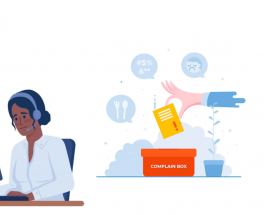Bad customer service is something we’ve all encountered. But have you ever been so frustrated that you promoted a tweet about it or wrote a country song? These extreme reactions highlight a bigger truth: a bad experience can quickly become a viral sensation in today’s connected world.
Let’s explore five real-world examples of poor customer service and the key lessons customer service leaders can learn to avoid similar pitfalls.
‘United Breaks Guitars’ Becomes Country Hit
Over 15 years ago, musician Dave Carroll had a memorable run-in with United Airlines. While at Chicago O’Hare, he saw baggage handlers damaging his $3,500 guitar. After being ignored by United staff and denied compensation, he wrote a song, “United Breaks Guitars,” about the experience.
The video went viral, racking up 3 million views in a week and attracting major media attention. The fallout was huge—United’s stock dropped 10%, costing shareholders $180 million. Eventually, United offered Carroll $2,400 in cash and flight vouchers to settle the matter.
- The Lesson:
Employees should feel like business owners, understanding profit and loss and the long-term value of addressing complaints quickly and empathetically. This approach also ties into accountability. Mistakes are inevitable, but transparency and taking responsibility can actually boost customer loyalty. Studies on the Service Recovery Paradox (SRP) show that a well-handled service failure can strengthen loyalty more than if the failure never happened.
Airbnb Host Blogs About Severe Vandalism
- What Happened?
Airbnb gained popularity for renting out homes to travelers, but trouble arose when host EJ blogged about guests stealing valuables and damaging her property. The company’s slow response led to a viral post, after which Airbnb reimbursed her and helped track down the thief. CEO Brian Chesky apologized and introduced a $1 million damage guarantee, plus improved guest profiles to help hosts screen visitors.
- The Lesson:
This example highlights the need for quick, caring customer service and clear action.
- Admit the mistake.
- Apologize sincerely.
- Explain how you’ll fix it.
- Listen to customers and get feedback.
- Make changes to prevent future problems.
Airbnb failed at first by not acknowledging the issue or acting quickly. After some criticism, especially from EJ’s blog post, they made the right moves, like changing their policies, to prevent it from happening again.
Man Promotes Tweets Bashing British Airways
- What Happened?
In 2013, businessman Hasan Syed paid $1,000 to promote tweets about British Airways’ poor service after his father’s baggage went missing. The tweets went viral, reaching over 300,000 of the airline’s followers. It was one of the first cases of “complainvertising.” After days of silence, British Airways blamed the delay on their limited Twitter hours (9am-5pm GMT) and asked Syed to send his baggage info via direct message.
- The Lesson:
British Airways’ mistake was blaming Twitter for its slow response, making the apology feel insincere.When a company makes a mistake, it should take responsibility and give a genuine, empathetic apology. Their delay shows the problem with reactive customer service. Proactive service can prevent issues from escalating.
Proactive steps include:
- Collecting customer feedback.
- Using data and automation to predict needs.
- Continuously improving based on trends.
- Providing helpful resources and support.
Training employees to meet customer needs.
Virgin Media Bills Dead People
- What Happened?
Virgin Media sent a bill to a deceased customer with a £10 late fee. The man’s son-in-law, Jim Boyden, posted the bill on Facebook, saying: “Sorry for my Father-in-law not paying, but he’s dead.” The post went viral with over 90,000 shares. Virgin Media apologized, saying the wording was wrong and automated responses shouldn’t appear on bills. They also closed the account and removed the late charges.
- The Lesson:
Automated systems can be risky, as shown by Air Canada’s AI chatbot issues. Human oversight is still needed, especially for sensitive matters like account closures after a death. Regular audits can catch errors early.Machine learning can improve automation by predicting and learning from past mistakes.








Your Comment